If men were angels, no government would be necessary
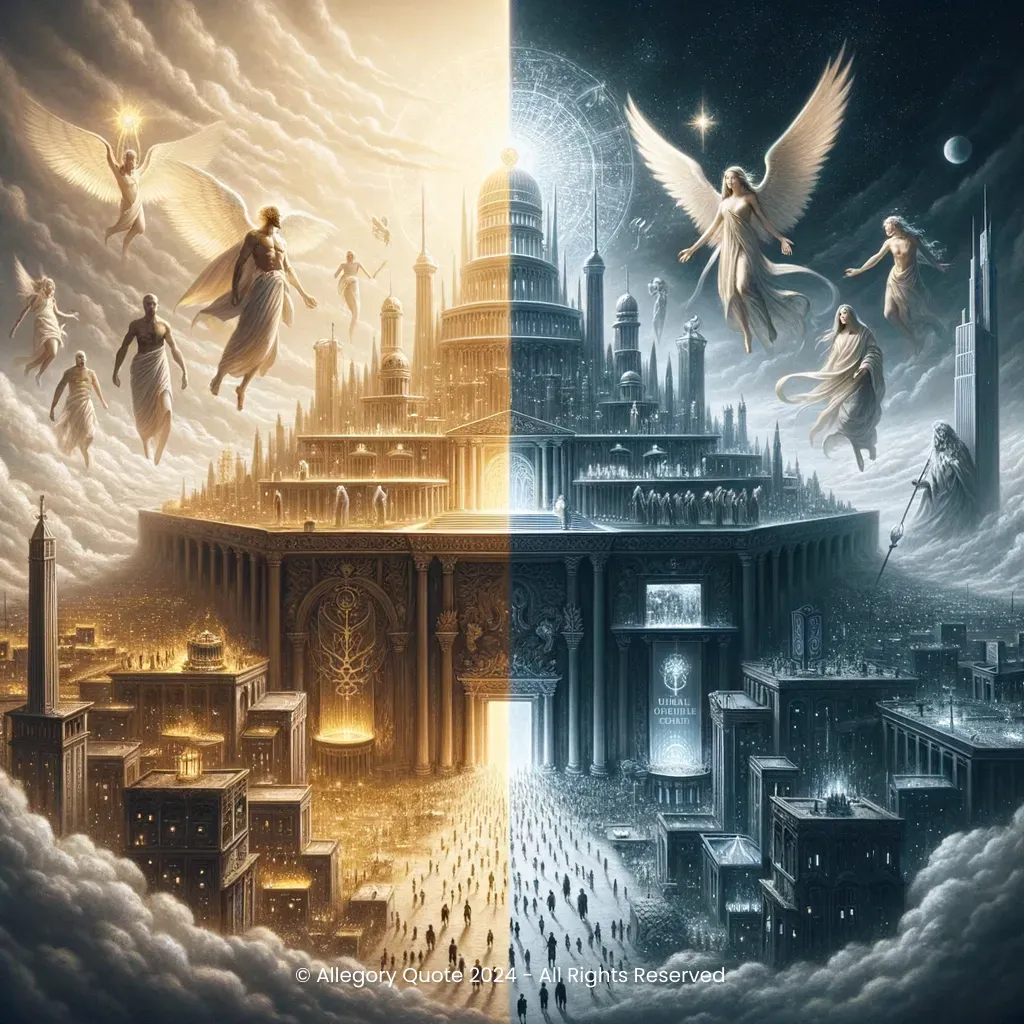
- Meaning
- This quote by James Madison encapsulates the idea that government is a necessity due to human nature. If humans were perfect beings, without flaws or evil tendencies, there would be no need for laws, rules, or governance to regulate behavior or ensure justice. However, because humans are fallible and sometimes act out of self-interest or malice, a system of government is required to maintain order, protect rights, and balance competing interests.
- Allegory
- The upper part of the image shows the celestial city, glowing and serene, symbolizing a place where laws are unnecessary due to the inhabitants' inherent goodness. The lower part depicts the earthly city, more bustling and complex, where various institutions signify the need for governance to maintain order. The hill connecting both cities represents the idealistic ascent from human imperfection to a utopian vision, highlighting the fundamental reasons for governments and laws in human society—rooted in the acknowledgement of our imperfections.
- Applicability
- The meaning of this phrase can be applied in many aspects of daily life. It suggests the importance of checks and balances in any system where power is involved. Whether in a workplace, family, or community, recognizing that people are not infallible and that no one should have absolute power can promote fairness and accountability. Understanding human flaws can help in building structures that mitigate these weaknesses and enhance cooperation and harmony.
- Impact
- Madison's quote has had a significant impact on political theory and the framing of democratic governments worldwide. It underscores the rationale for the separation of powers and checks and balances in modern democratic systems. The phrase is often cited in discussions about the necessity of oversight and regulation to prevent the abuse of power, ensuring that no single entity can dominate or corrupt the system.
- Historical Context
- This phrase was coined in the late 18th century, during the debates on the drafting of the U.S. Constitution. The historical context includes the struggle to create a government that avoided the pitfalls of tyranny, as seen in the monarchies of Europe, while addressing the inefficiencies and weaknesses of the Articles of Confederation, the fledgling nation's first governing document. The goal was to form a more balanced and effective federal system.
- Criticisms
- Criticisms of this phrase and its interpretation might argue that it presents a somewhat cynical view of human nature, potentially fostering an overly suspicious or negative perspective on individuals' intentions and capabilities. Some might contend that it underestimates the potential for cooperative, altruistic behavior and overemphasizes the need for governance and control.
- Variations
- There are variations of this phrase in different cultures that emphasize the need for government or oversight due to human flaws. For instance, the Chinese proverb '治国必先治家,治国必先治身’ (To govern the country, one must first govern the family, to govern the family, one must first govern oneself) emphasizes personal and familial integrity before governance.
-

National honor is national property of the highest value.
-
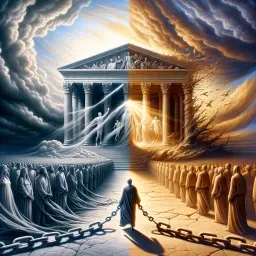
I tremble for my country when I reflect that God is just; that his justice cannot sleep forever.
-

It is easier to do a job right than to explain why you didn't.
-

False face must hide what the false heart doth know.
-

It is a damn poor mind indeed which can't think of at least two ways to spell any word.
-
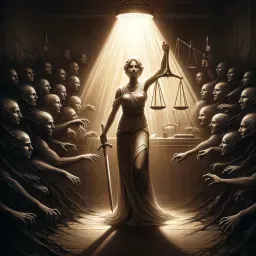
Facts are stubborn things; and whatever may be our wishes, our inclinations, or the dictates of our passion, they cannot alter the state of facts and evidence.
-

What is right and what is practicable are two different things.
-
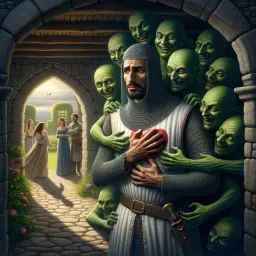
O, beware, my lord, of jealousy; It is the green-ey'd monster which doth mock the meat it feeds on.
-
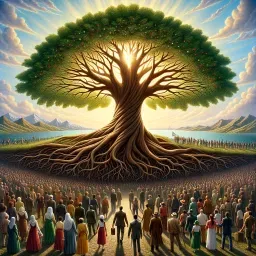
I contend that the strongest of all governments is that which is most free.
-

It is better to be alone than in bad company.
No Comments